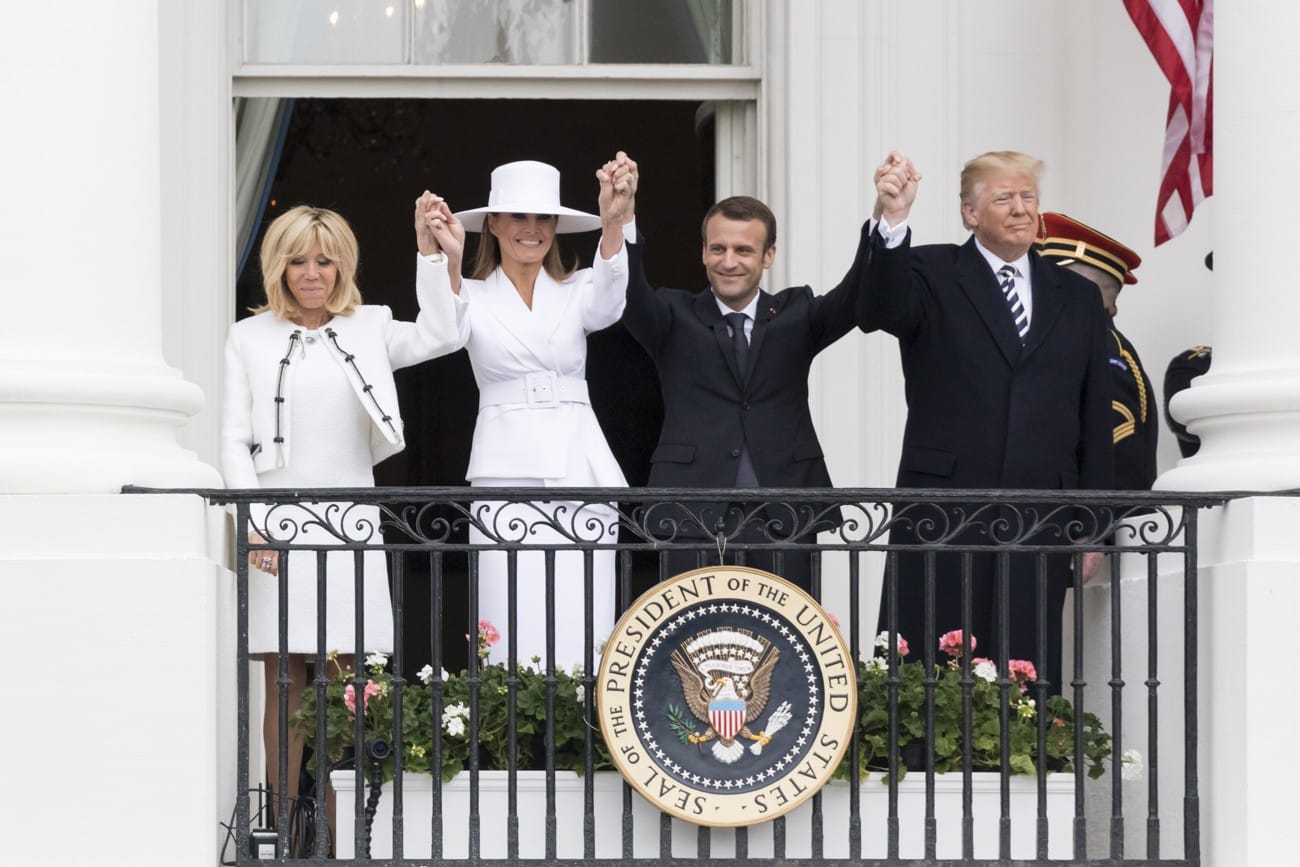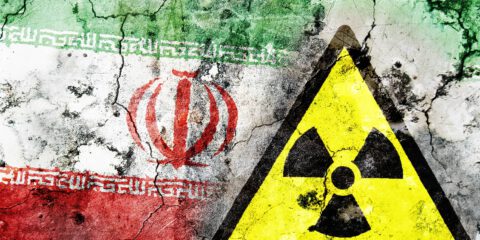The French president’s visit to served to demonstrate Macron’s importance as a dynamic and proactive European player, and as a partner in the effort to curb Iran’s strategic ambitions.
The French president’s visit in Washington was another sign of the surprising personal friendship he has been able to forge with President Trump. It also served to demonstrate Macron’s importance as a dynamic and proactive player in the problematic political realities of today’s Europe, and as a partner in the effort to curb Iran’s strategic ambitions.
His messages on Iran – following his working session with Trump, in his speech before the two houses of Congress, and in media interviews – have admittedly been subject to a variety of interpretations. Some of Obama’s ardent acolytes, who still look upon the nuclear deal with Iran (the JCPOA) as a brilliant or at least a necessary diplomatic achievement, were quick to latch on to Macron’s call not to abandon the agreement before a better and more substantive alternative is found. On the other hand, those who strongly endorse Trump’s position (a “terrible” agreement…), took note – with a sense of accomplishment – that Macron now supports establishing a “new deal” with Iran, and is willing to admit that the flawed existing agreement left major concerns unanswered.
The Iranian leadership, in any case – in line with their feverish reaction, reflected also by Hizbullah, to the French participation in the air strike in Syria – have already chosen to declare in unambiguous terms that they will not accept any new deal that does not serve the Iranian interests well. President Rohani, normally charged with expressing more refined diplomatic messages, even wondered aloud as to how can a benighted real estate hustler like Trump compound with “a certain European country” and seek to determine terms, willfully ignoring Iran’s adamant refusal to reopen the deal for negotiations.
It is this aggressive Iranian response which actually indicates the real meaning of what happened during Macron’s talks in Washington. True, he has held to his position, namely, that the JCPOA should not be abandoned (and the nuclear-related sanctions should not be renewed, at least at this stage). But at the same time, he also outlined a four-legged table, with the preservation of the JCPOA in its present form being just one of them. The others are increased pressure (i.e. specific sanctions) over Iran’s ballistic missile program (a program which makes little sense, in military terms, unless it is designed to deliver weapons of mass destruction. Second, the use of varied leverages to restrain Iran’s vaulting regional ambitions. Third, a demand for the immediate launching of fresh negotiations over what would happen by the middle of the next decade, when the present limitations now imposed by the JCPOA on uranium enrichment in Iran will totally expire.
In each and every one of the last three legs – and naturally, above all, on the question of the Iranian regime’s regional conduct – this French position is in line with the expectations of the Arab Gulf states, headed by Saudi Arabia and the UAE. It is also in line with the positions and fears of Israel, which shares their perspective on the Iranian threat and their anger at the flaws of the JCPOA. The broadening trade relationships – and in particular the huge order placed by the UAE with “Airbus” – surely adds to the affinity of views and the emergence of a firm French stand towards Iran (and towards Asad and Hizbullah).
Even before he left for the U.S., Macron made it clear that he supports taking measures against Iran due to the ballistic missile program as well as because of regional subversion. He then took a step beyond this limit – which to some extent proves (once again) that Trump, with his peculiarities, is able to maneuver his interlocutor and obtain an important outcome. What Macron did in Washington was to join the demand for a renewed negotiation over the unlimited enrichment capacity which Iran have been able to realize in the next decade. This undoing of the so-called “sunset clauses” is in fact the very core of the debate over “fixing” the JCPOA. It had been these clauses which left Iran with a path to acquiring enough fissile material for a bomb – several times over. A re-negotiation of these clauses – meant to block this path effectively – would in practice amount to the dismantling of the existing framework and replacing it by a “new deal”. No wonder the Iranian leadership hastened to say “no”.
Theoretically, the road is now open to a decision by Trump and his top advisers (led by John Bolton) to put off the May 12 deadline and give themselves more time to re-frame any decision on the resumption of sanctions and the abandonment of the JCPOA. For this to happen, however, three things have to happen, and even Macron himself was not sanguine about the prospect of these conditions being fulfilled.
To begin with, a broader European consent is needed on all four “legs” of Macron’s table, as he outlined them during his visit.
Then, the U.S. Congress would need to join the effort. This would mean, in effect, that the Democrats, would forego their ability (under the Senate’s procedural rules) to use their right of fillibuster, and thus would enable the necessary legislation to pass. Without such legislation, this “new deal” would lack the enforcement mechanism necessary for making it operative.
Third, there needs to be at least some sign that the Iranians themselves would consent to the reopening of negotiations on the sunset clauses. Backed by the Russian (and apparently also the Chinese) messages supporting their rejectionist stance, the Iranians are unlikely to do so – certainly not at the early stages of the emerging test of wills, which is likely to be intensive and possibly risky. A breakthrough within the next few weeks seems improbable.
If all three conditions would be met, or would seem likely to be met in the foreseeable future, this should be welcomed by Israel. May 12 is not a sacrosanct date, and if the result – a real “fix” of the JCPOA – is achieved, it is the bottom line that would matter, rather than the leverages that brought it about. If this should fail to happen, however, it is at least likely now that the U.S. will not be isolated when the time comes to “nix” the agreement and renew the nuclear sanctions.
Once this happens, Israeli authorities at all levels should prepare – in terms of public and political awareness, as well as in practical aspects of security and even economic measures – for the prospect of a crisis atmosphere fed by a burst of Iranian threats. Trump has already seen fit to signal his own position well in advance. Backed by the message implicit in the allied action in Syria, he used an unusually brutal language (that Iran would be hit as few had been hit before, which could be read as indicating a willingness to use nuclear weapons or massive military attacks) to deter Iran from threatening to renew enrichment. Under these circumstances, indeed, a firm stand – shored up by credible deterrent messages – will not bring us close to the edge of war; it will in fact help in preventing it.
JISS Policy Papers are published through the generosity of the Greg Rosshandler Family.
photo: By The White House from Washington, DC (The Official State Visit of France) [Public domain], via Wikimedia Commons









 - בניית אתרים
- בניית אתרים